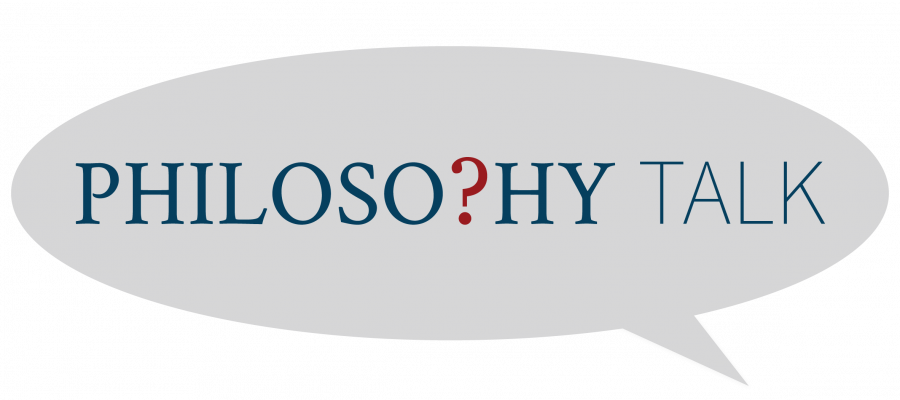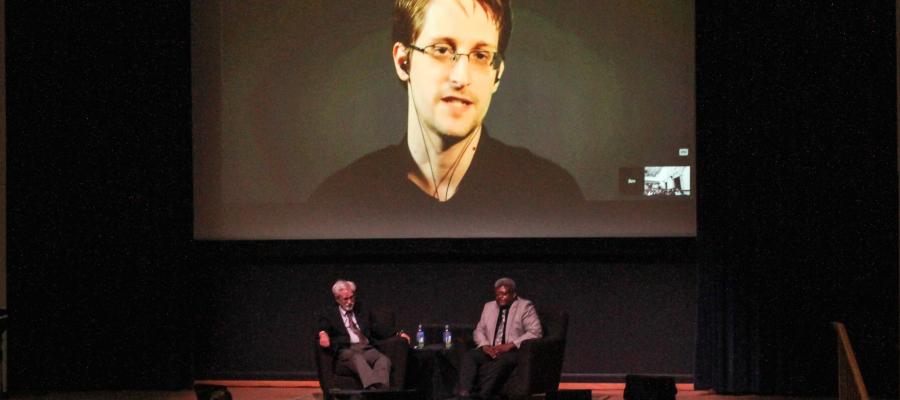Does Reputation Matter?
15
Nov 2018
How much should we care about our reputation? I think that’s a really difficult question. One can easily imagine a Stoic telling us not to care at all: it’s not something that is under our control, and so our job is simply to learn not to worry about it. We should just strive to live a good life, and leave others to decide what they think of us. In the immortal words of Stoic philosopher Taylor Swift, haters gonna hate, hate, hate, hate, hate. Still, it’s not clear to me that reputation is something that is entirely out of our control. Yes, our enemies can make up all kinds of unpleasant...
Read moreA Puzzle About Sacred Values Part II
08
Nov 2019
I wrote in a recent blog about sacred values, which seem to have puzzling features. As noted, Scott Atran’s 2010 book Talking to the Enemy chronicles his anthropological work among Muslim terrorists in Indonesia. In one study he discusses, he gave his informants this problem, for which each informant would have to choose between two of the three options: Complete a successful, effective suicide bombing attack. Complete a successful, effective non-suicide bombing attack. Complete a holy, once-in-a-lifetime pilgrimage to Mecca. The puzzle arose from the fact that...
Read moreDiogenes the Cynic
19
Sep 2013
Sunday's program is about Diogenes the Cynic. Diogenes was born about 413 BCE and died in 323 BCE, the same year, and, at least according to legend, the same day as Alexander the Great, who had an unrequited admiration for Diogenes. Cynicism was a School of Philosophy that was founded in Athens by Antisthenes (455—366 BCE), a student of Socrates. The School lasted about 800 years after Diogenes, and was a major influence on Stoicism. Our modern words "cynic" and "cynicism" are historically connected to this School, but their meanings are only tangentially...
Read moreLights! Camera! Think!
10
Feb 2011
This week, it’s the third annual Dionysus Awards Show. The Dionysus Awards are presented to the most philosophically interesting movies of the year. And sometimes, when we feel like it, we also honor philosophically notable movies from the past. Now unlike your average awards show, we accept spontaneous nominations from the floor. So we’ll be talking to some of our listeners who wrote in with nominations and to some of our past guests as well. But since John and I are the ultimate judges, we reserve the right to either grant or refuse awards to...
Read moreWhy Self-Deception Research Hasn’t Made Much Progress
01
Sep 2010
I’d like to talk frankly about why research on the topic of self-deception hasn’t made much progress—as far as I can see—despite a steady-stream of on-going interest. There’s been some excellent work, but it doesn’t seem to me that the topic on the whole has moved forward all that much. In both philosophy and psychology there has been a tendency to talk about self-deception as if it were one thing. If it’s one thing, we can just figure out what that is. Right? The philosopher’s approach is to try to solve the paradox of self-deception and come up with an analysis of self-deception in...
Read moreWhy Music Matters: Open Thread!
12
Jan 2008
I'm in the airport at Tucson. I'm listening online to our episode on "Why Music Matters" which we recorded in front of live audience at a locale in San Francisco. David Harrington, of the world famous Kronos Quartet is our guest. Since my flight is about to board, I won't have time to listen at length. And I've been too wrapped up in the conference to blog about the topic. But I thought it might be fun just to open up an entry to comments from listeners about the show and the topic. I'll add my own two cents worth in a separate entry when I get some time --hopefully later this week. For now,...
Read moreGood, Evil, and the Divine Plan
19
Dec 2015
This Sunday we're asking about Good, Evil, and the Divine Plan.
The question is: if God knows all, is all-powerful, and is benevolent, why did He create a world with suffering, evil and injustice in it? That’s what philosophers call “The Problem of Evil”.
The first and best statement I know of is from Epicurus, around 300 B.C.,
Is [God] is both able and willing [to prevent evil],
Then whence cometh evil?
Is he neither able nor willing...
Political Activism in the Digital Age
11
Feb 2015
This week, we're asking about Cyber-Activism -- social or political activism mediated and enabled by the use of cyber-tools like email, Facebook, Twitter, Youtube, podcasts and so on. The internet has changed practically everything – from the way we work to the way we play. It stands to reason that it would change the way we engage in social and political action too. Remember how hard it was to organize a spontaneous rally before the internet? You had to knock on doors, hand out fliers, hang posters all over the place. Today, you send out a tweet;...
Read moreThe Philosophy Talk Magical Mystery Tour
10
Nov 2005
The Philosophy Talk team just finished a brief stint "on the road." On October 27th, we taped a show in front of about 200 Stanford Alums up in Sacramento on behalf of the Stanford Alumni Club of Sacramento. The topic was "Progress and the Environment." Our guest was Terry Tamminen, formerly head of California's Environmental Protection Agency and currently Cabinet Secretary (Chief of Staff, roughly) to our beloved Governor Arnold Schwarzenegger. A week later, we did another live event -- Backstage Live With Philosophy Talk. This time we had a smaller audience of about 50 KALW contributors,...
Read moreTeaching Philosophy: The Answer to Automation?
11
Jan 2017
In our annual year-in-review show, John and Ken were joined by political theorist Margaret Levi to discuss what the future looks like for workers when technology and automation are putting so many out of work. The particular technology discussed on The Examined Year 2016 was driverless vehicles, as there were some major advances (and some setbacks) in that area last year. But that is just part of a bigger trend in automation that is threatening jobs in many sectors. In The Guardian this week, teaching philosophy to children was suggested as the way to prepare future...
Read moreWhat Makes a Film Philosophical?
17
Feb 2018
Why are some films philosophically important? People often assume there’s only one answer to that question: because they reveal important truths about life. But that assumption is profoundly and importantly mistaken. Although most of us have been conditioned since early childhood into thinking that all fictions Teach Lessons, Send Messages, and Offer Morals, it turns out that many of the world’s most sophisticated novelists and film-makers often aim at completely different goals. Large numbers of great artists have made this point. Virginia Woolf said “art is being rid of all preaching”;...
Read moreA Puzzle About Conspiracy Theorists (Part I)
10
Aug 2018
I attended a talk about conspiracy theories at the end of July. That talk has played on my mind since, especially given the recent banning of Alex Jones, that prominent purveyor of conspiracy theories, from Apple, Facebook, YouTube, and Spotify. The speaker at the talk was Jan-Willem van Prooijen from the Vrije Universiteit (VU) Amsterdam. He’s an expert both on the psychology behind conspiracy theories and on the psychology of moral punishment, and he offered substantial insights into why people would be taken in by the bizarre rantings of someone like Jones. Van Prooijen uses the...
Read moreA Deep Dive into Democracy
01
Jun 2017
America’s so-called democracy is under serious strain these days. And not just because of the November election and its aftermath. The cracks and tensions in our democracy have been building for a long time. But some, including me, fear that the system may soon be stressed to the breaking point. Since this summer clearly has the potential to be a long, hot one for our country, we thought we’d start out the season with a deeper look at Democracy in America. We’ve done a host of episodes over the years on the topic of democracy. We've discussed Corporations and the Future of Democracy with...
Read moreOn Awesomeness
27
Aug 2021
Is “awesome” just an overused word for things we really like? Or does it refer to a particular kind of excellence? Would the world be a better place if we all tried to be more awesome and less sucky? This week, we’re thinking about awesomeness. As an immigrant to this country, it seems to me that Americans love to call everything and anything “awesome.” Once upon a time, it used to mean inspiring fear or awe, but now it seems it’s just a word that tech bros and valley girls use for things they like. Of course, just because a word once meant something in particular, it doesn’t follow that...
Read moreIs “Fascism” a Useful Word?
25
Sep 2017
Profligate use, in currently heated political discourse, of the words “fascist” and “fascism” threatens to render them uninformative. One hears accusations of “fascism” applied to such a diversity of political types that being called one seems little more distinctive than wearing blue jeans. Neo-Nazis—appropriately—have been called fascists. But clusters of people on the opposite end of the political spectrum also get so labeled: for example, this piece uses “fascist” to refer to students at Yale demanding a safe space. And we’ve even seen, ironically, the word “fascist” applied to members of...
Read moreThe Birth of Black Feminism
30
Sep 2024
Anna Julia Cooper was only the fourth African American person in history to earn a PhD, after having been born into slavery. She went on to write A Voice from the South (1892), a landmark book which influenced later thinkers such as Frederick Douglass and W.E.B. Du Bois. Among other things, it anticipated Du Bois's discussion of “double consciousness”: in a racist society, she wrote, Black people can easily end up seeing themselves through the eyes of their oppressors. You see yourself not just your own way but also someone else’s way (hence the term "double...
Read moreAnti-Semitism is Racism
08
May 2019
In incidents six months apart to the day, White supremacist shooters walked into American synagogues with the sole purpose of killing Jews. It seems that lethal anti-Semitism has returned. But in reality, it never went away. It’s simply been dormant, like an ancient pathogen that reawakens when the environment once again becomes hospitable to it. Judging from what I’ve read, and from the conversations that I’ve had with students, friends, and colleagues, many Americans think that the synagogue shootings were motivated by religious hatred, just as many believe that the Nazis persecuted...
Read moreMore Money Matters
04
May 2020
Listener Alicia in Berkeley had a question following our recent broadcast of (Why) Money Matters with guest Graham Hubbs from the University of Idaho. She writes: My question is if the government prints money which is just pieces of paper to buy goods and services (through employment program) does not that money then take on an intrinsic value? How does that impact your guest’s theory of the deficit? And isn’t there a problem once the cost of servicing national debt exceeds GDP? We put the question to Graham and he had the following answer: The questions asked here can, and I...
Read moreCaptivity
08
Apr 2017
This week, our topic is the ethics of captivity. Our plan is to discuss both human captivity and animal captivity. Now you may ask what is to be gained by lumping humans and animals together in this way. They are, after all, significant differences between them and us. But there are also similarities. For example, putting a person in a prison deprives him of freedom and autonomy. Putting an animal in a cage does the same thing. That’s a similarity. On the other hand, we typically put people in prison to punish them. We aren’t punishing animals when we put them in zoos or keep them as...
Read moreKierkegaard
18
Nov 2011
Kierkegaard was a very important Danish philosopher of the early 19th century. He criticized Hegel severely. But apart from not liking Hegel, he just seems to exemplify most things I dislike in a philosopher. I like philosophers who tell you what they think in a clear and straightforward manner. Kierkegaard wrote under a bunch of pseudonyms, poetically I guess, but turgidly. I think reason is the method of philosophy. Kierkegaard thinks we should accept contradictions and make leaps of faith. Ken tells me I have it quite right. Kierkegaard...
Read moreAm I a Postmodernist
12
Sep 2009
The term ``postmodern’’ came into use as a description of certain trends in architecture, art, and literature in the 1970’s, although the trends it describes reach back earlier in the twentieth century, to Joyce and Finnegan’s Wake in the case of literature, and to the 1950’s at least in the case of architecture. But what counts as postmodern philosophy? One theme of postmodernism, according to Jean-François Lytard at any rate, is the opposition to theory and “meta-narrative”. If I had just this much to go on, I might think that a good candidate for postmodern...
Read moreOdds and Ends
24
Jun 2006
Our limited forray into podcasting via the Stanford Itunes experiment has been a great success. Lots and lots of folks, though, have expressed the wish that we would podcast all of our episodes. Well, we're about to make those wishes come true. We're currently in negotiations with two podcasting services. We will probably sign a contract with one or the other in the next week or two. Once we do, we will immediately start converting all of our files to the relevant format. For a modest fee, listeners will be able to subscribe to...
Read moreLife as a Work of Art
02
Jun 2016
Some philosophers, including the guest on this week's program, Lanier Anderson, his teacher Alexander Nehamas, and their hero Nietzsche, are of the opinion think that we should think of our lives as works of art. I think Ken is sympathetic to this idea, at least. I"m a bit skeptical, but ready to learn. First off, it seems that lots of lives are literally works of art, or parts of works of art. Captain Ahab’s life is part of Melville’s novel, Moby Dick, for example. But my life isn’t a work of art in this sense, and I don't suppose anyone thinks I should regard...
Read moreThe Ethics of Whistleblowing
09
Jul 2015
This week we're asking about The Ethics of Whistleblowing -- with Edward Snowden – one of world’s most famous whistleblowers. Mr. Snowden joined us from Moscow in front of a live audience at Stanford University. Not only was the program recorded for radio broadcast, we also made a video of the event, with a lively question and answer period that follows the radio portion of the interview. It takes you even deeper in to Snowden's thought process. Again, this extended discussion cannot be heard on the radio. You can also check out several excerpts from...
Read moreSteroids and Baseball
07
Apr 2005
I do not want to distract us from the "heavy" (no pun intended) issues to which we have devoted our attention recently, but, what with the opening of baseball season and all, I thought I'd ask you to think about the following. Steroids (of the sorts used by some players and other athletes) apparently have serious health side-effects. For that reason it certainly seems reaonable to ban their use. But now suppose our wonderful pharmaceutical companies could develop side-effect free steroids--comparable medicines with (by stipulation) no bad health effects. Under such a scenario (admittedly...
Read more






















